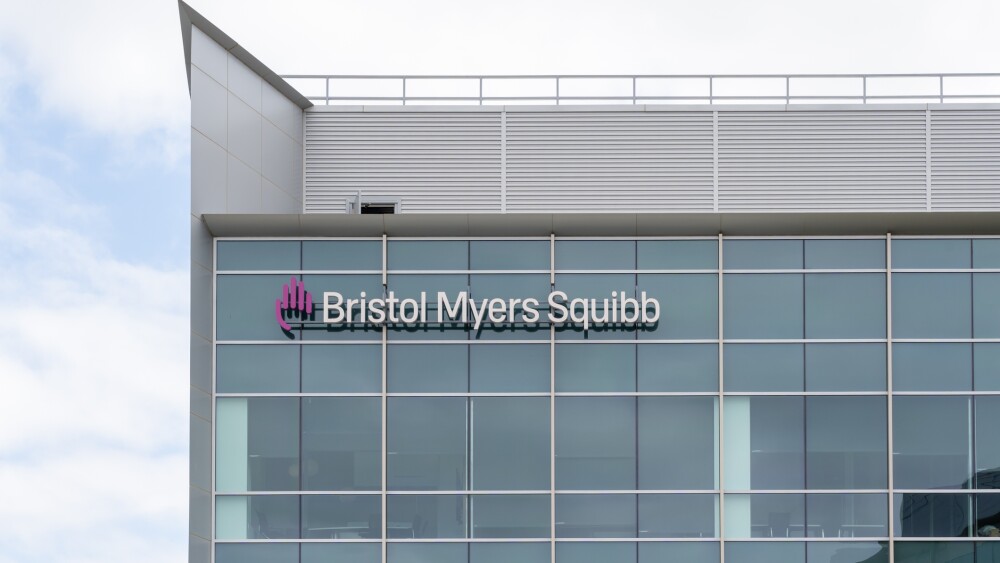BOSTON, Nov. 1 /PRNewswire/ -- Early results from a major ongoing clinical study showed that a high number of patients chronically infected with hepatitis C virus (HCV) who failed previous treatment with standard interferon therapies achieved an early virological response (EVR) when retreated with weight-based PegIntron(R) (peginterferon alfa-2b) and Rebetol (R) (ribavirin) combination therapy. Results from the first treatment phase of the EPIC(3) (Evaluation of PegIntron in Control of Hepatitis C Cirrhosis) study (1), a large multicenter global clinical study involving approximately 2,200 patients at approximately 140 sites worldwide, were presented today in an oral presentation at the 55th Annual Meeting of the American Association for the Study of Liver Diseases (AASLD).
Investigators reported early data on the first 1,435 patients in the EPIC(3) study showing that 65 percent of patients with mild-to-advanced fibrosis who were relapsers or non-responders to previous treatment with interferon therapy with or without ribavirin achieved an EVR. EVR is defined as a substantial (greater than 2 log10) decrease in viral load at week 12 of therapy. Furthermore, 40 percent of patients in the study had undetectable levels of the virus (HCV RNA negative) at week 12.
"The high rate of EVR seen in the EPIC(3) study underscores the potential value of retreating patients who were relapsers or non-responders to previous therapy," said Prof. Thierry Poynard, M.D., Hopital Pitie-Salpetriere, and a lead investigator of the study. "These early results are particularly encouraging because we've seen in previous studies (2) that EVR is predictive of a patient achieving a sustained virological response with PegIntron combination therapy," he said.
In the EPIC(3) study, EVR was significantly higher overall in patients with HCV genotypes 2 or 3 (91 percent) than in patients with HCV genotype 1 (59 percent) (p<0.001). HCV genotype 1 is considered the most difficult form of the virus to treat. EVR was also significantly higher in patients who had relapsed following previous therapy (91 percent) than in patients who were non-responders (54 percent) (p<0.001).
"Patients who were not successful with previous therapies have a better chance today to clear the virus than ever before," said Prof. Poynard. "Not only do we have better medicines today, but doctors have more experience with the drugs and treatment regimes; dosing is once weekly instead of three times a week; and there are patient support programs in place to encourage patients throughout a long course of treatment. For those patients who ultimately do not clear the virus, we are evaluating in the EPIC(3) study whether low-dose maintenance therapy may be able to prevent or delay liver disease progression caused by hepatitis C," he said.
EPIC(3) Study
The EPIC(3) study is essentially three studies in one evaluating PegIntron and Rebetol combination therapy. The study involves: 1) a trial in nonresponders to previous therapy with sustained virological response (SVR) as the clinical endpoint for patients with F2-4 fibrosis; 2) a trial to improve liver histology with long-term therapy in patients with F2-3 fibrosis; and 3) a trial to improve clinical endpoints in cirrhotic patients (both nonresponders and previously untreated patients). SVR is defined as the absence of detectable levels of the hepatitis C virus six months following treatment and is considered the standard measure of efficacy.
The EPIC(3) study will involve approximately 2,200 patients with fibrosis (but not cirrhosis) in an initial treatment phase, and approximately 1,700 patients, who either did not respond to treatment in the first phase and/or have cirrhosis, in a second, long-term (three-to-five year) maintenance treatment phase.
Initial Treatment Phase: HCV patients with F 2-4 fibrosis (mild-to- advanced scarring but not cirrhosis) who did not respond or who relapsed after previous treatment with interferon therapy with or without ribavirin are retreated with weight-based PegIntron (1.5 mcg/kg/wk) and Rebetol (800-1,400 mg/day) combination therapy for 48 weeks.
Maintenance Treatment Phase: patients who either did not respond in the initial treatment phase and/or have cirrhosis will receive a weight-based low dose of PegIntron (0.5 mcg/kg/wk) as long-term maintenance therapy. The study will evaluate whether a maintenance dose of PegIntron monotherapy can delay or prevent life-threatening liver disease caused by the virus in patients with advanced disease.
The EPIC(3) study is sponsored by Schering-Plough Research Institute and is being conducted in the United States, Europe, Latin American and the Far East.
Additional clinical study data3 examining the long-term efficacy of weight-based low-dose PegIntron maintenance therapy were also presented at the AASLD meeting this year.
The 2,300-bed Groupe Hospitalier Pitie Salpetriere is the largest hospital in France with 20 Research Units and serves more than 500,000 patients per year. Its faculty includes 110 full Professors of Medicine. In addition to serving the people of France, the hospital also is a teaching facility with 600 students from the Universite Paris VI.
References: (1) Poynard T, Schiff E, Terg R, McHutchison J, Hopf U, Goncales F, Bedossa P, Harvey J, Justice L, Burroughts M, Brass C, Albrecht J. High Early Viral Response (EVR) with PEG-Intron/Rebetol (PR) Weight Based Dosing (WBD) in Previous Interferon/Ribavirin HCV Treatment Failures; Early Results of the EPIC(3) Trial. Oral presentation. Monday, Nov. 1: 55th Annual Meeting of the American Association for the Study of Liver Diseases (AASLD), Boston, MA, USA, Oct. 29-Nov. 2, 2004. (2) Davis GL, Wong JB, McHutchison JG, Manns MP, Harvey J, Albrecht J. Early Virologic Response to Treatment with Peginterferon Alfa-2b plus Ribavirin in Patients with Chronic Hepatitis C. Hepatology, Vol. 38, No. 3, 2003, pp. 645-652. (3) Afdhal N, Freilich B, Levine R, Black M, Brown R Jr, Mansour H, O'Brien M, Brass C. Colchicine versus PEG-Intron Long Term (COPILOT) Trial: Interim Analysis of Clinical Outcomes at Year 2. Oral presentation Monday, Nov.1: 55th Annual Meeting of the American Association for the Study of Liver Diseases, Boston, MA, Oct. 29-Nov. 2, 2004.
Hopital Pitie-SalpetriereCONTACT: Molly Watson of Ritz Communications, Mobile: +1-413-454-3926,Office: +1-413-568-5794, for Hopital Pitie-Salpetriere




